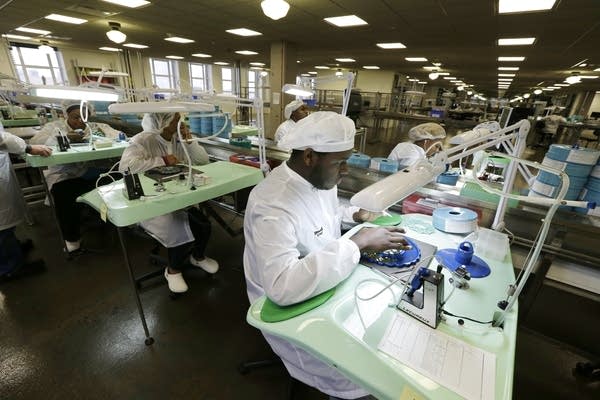Is urban manufacturing making a comeback?

Go Deeper.
Create an account or log in to save stories.
Like this?
Thanks for liking this story! We have added it to a list of your favorite stories.
As part of our weekly series of America's employment landscape, we look at the revival in urban manufacturing.
Why is there a shift back to artisan based production?
The Massachusetts Institute of Technology recently hosted a symposium on the topic:
"There's this huge opportunity for those of us working on advanced manufacturing technologies to think about technologies which can allow production at small scale, local to where innovation is occurring, and then allow a path to scale up," Martin Schmidt, MIT's provost, said.
In recent decades, Schmidt noted, many older manufacturers have downsized their research divisions and outsourced production capacity in an effort to please investors -- leaving a large opening for newer firms to emerge. Schmidt's own research group works on micro- and nanoscale fabrication of devices, sensors, and systems; as an example, he noted that it is possible that enterprises could take advantage of such advances to manufacture semiconductors at smaller scales.
"If we're successful in doing that, what we're going to enable is a whole set of semiconductor factories in Kendall Square that are in a 100, or 200-square-foot room on a 10-foot table, that have a lot less environmental impact. ... We're going to unlock a huge array of innovation, and we're really going to speed up innovation in this space," said Schmidt, who was a faculty participant on MIT's multiyear study of the sector, Production in the Innovation Economy (PIE).
Turn Up Your Support
MPR News helps you turn down the noise and build shared understanding. Turn up your support for this public resource and keep trusted journalism accessible to all.
Dear reader,
Your voice matters. And we want to hear it.
Will you help shape the future of Minnesota Public Radio by taking our short Listener Survey?
It only takes a few minutes, and your input helps us serve you better—whether it’s news, culture, or the conversations that matter most to Minnesotans.



